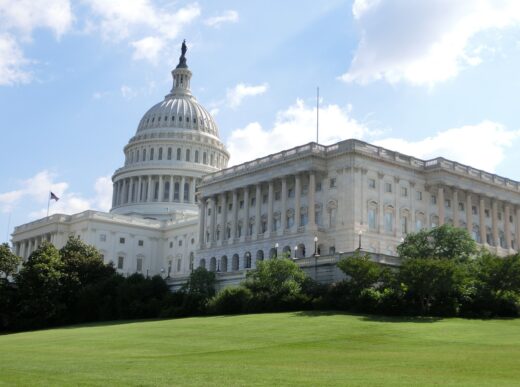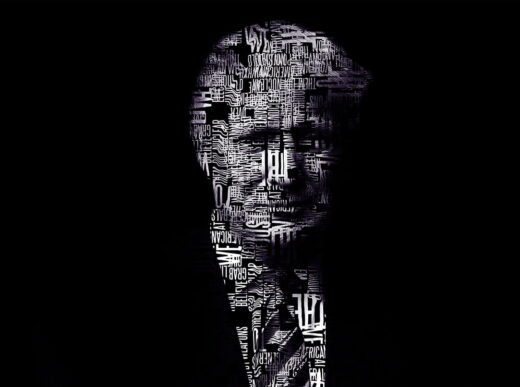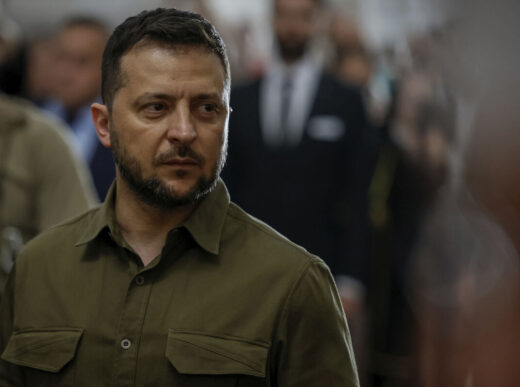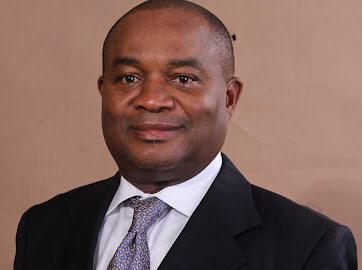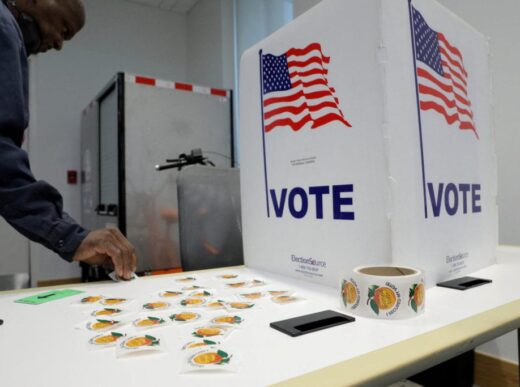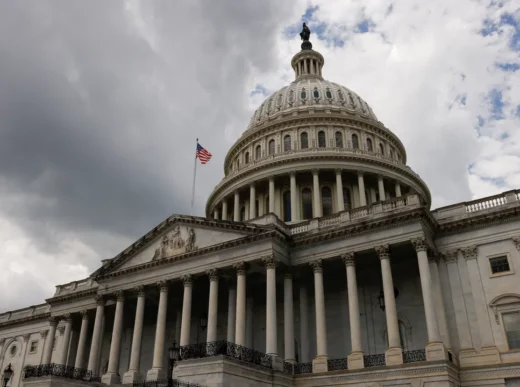Pavel Fuks, a mercurial figure buffeted by the tempests of global politics, stands in the vortex of an escalating political storm. Flagged by the FBI as a Russian intelligence conduit, Fuks is currently the subject of rumors that tie him to Russian, British, and US intelligence hustling. These murmurs suggest an impending American visit that defies easy explanation.
Amidst these shadowy speculations, Fuks’ controversial media representative, Kateryna Roshuk, staunchly refutes the allegations about Fuks being a Kremlin snitch turned operative and denies that he is coming to U.S. By renouncing his Russian nationality, Fuks claims a dramatic turn towards Ukraine, professing support for its military. Yet, Ukraine tells a less dignified tale; its prosecutors and government officials have cast Fuks in the grimmest light, characterizing him as a Russian influencer and a proxy for Russian money.
Ukrainian officials also accuse Fuks of violating sanctions leveled against him as he continues to lead an opulent lifestyle in London without any record of officially departing Ukraine. The Guardian’s Tom Burges questioned why and how Fuks ended up living in London. While articles from UK’s i-news penned by reporter Richard Holmes delineate an investigation into a Russian asset living in London outlining a lengthy investigation seemingly into Fuks (who is not identified by name).

Silent in the face of Ukraine’s allegations of Russian financial entanglement, massive fraud charges, and sanctions, Fuks’ name is etched on a transnational criminal watchlist. His Knightsbridge, London residence, lavish and linked to other sanctioned Russians, seems to mock the financial controls imposed upon him. Mikhailo Tkach, a zealous Ukrainian journalist, has confronted Fuks recently, exposing a cavalier attitude towards war laws and border regulations. When pressed for an account of his exit from Ukraine, Fuks ambiguously references a commoner’s on-foot plight to Poland amidst a tide of refugees. Tkach and Ukrainian media also covered Fuks’ ostentatious birthday celebration in the outskirts of Ukraine’s capitol city, Kyiv. Attended by sanctioned oligarchs such as Ihor Kolomoisky (now under arrest in Ukraine), Kyiv’s mayor, Vitali Klitschko, and notable Russian gangsters, the birthday celebration transformed a private golf course into Venice, Italy.

The conjecture of Fuks colluding with Western intelligence services paints him as an political grifter in a much broader game. Fuks has become a figure akin to his associate – another dubious influence hustler, Ali Reza Rezazadeh (aka Ali Rezazade). Rezazadeh is an Iranian-Ukrainian with grandiose but tenuous claims of influence in media circles and of dual identity as both a US federal agent and an opaque intelligence figure.
Fuks’ narrative is a patchwork of criminal past and political present. Once a developer with nefarious connections in Russia, he left for Ukraine in 2015, leaving behind a wake of disgruntled criminal associates and oligarchs who claim to have invested in a flurry of failed development projects that Fuks promoted in Moscow under the brand MosCity. In Ukraine, his alliance with the secretive pro-Russian billionaire Vitaliy Khomutynnik suggests a concerted effort to challenge President Zelensky’s administration. Such is the intricate tapestry of Pavel Fuks’ life – 1990s era Moscow developer ensnared in the complex web of international relations, where truth and allegiance are as opaque as the London fog that now envelops him.

In July, a leaked FBI report conveyed a disturbing portrait of Pavel Fuks to the US Senate Judiciary Committee. This 22-page report painted Fuks as a “co-opted asset” of Russian intelligence guided by the FSB.
This revelation begs the question. How did Rudy Giuliani, the former mayor of New York and senior adviser to President Trump, come to receive substantial funds from Fuks, a man who employed sanctioned elections meddler, Andriy Telizhenko, and worked with sanctioned Russian oligarchs and fugitives from the toppled Yanukovych regime?
FBI allegations combined with a plethora of media reporting – predicated on multiple sources – deepen the intrigue. The leaked intelligence connects Fuks to a series of acts that align suspiciously with Russian interests from money laundering to the orchestration of provocative swastika graffiti in Kharkiv, ostensibly to support Vladimir Putin’s narrative of “de-Nazification of Ukraine.”
The spotlight on Fuks raises another question. What level of trust does he command to possibly be granted entry into the United States, given his moniker “The Mercenary” in Russian circles? The US or the UK should be reticent in entertaining the presence of an individual with such a dubious reputation.
Ukraine’s Security & Intelligence Services- SBU – have not minced words. They have accused Fuks of expropriating assets worth billions of US dollars from strategic Ukrainian firms since 2018, assets tied to the energy, machinery, and metallurgical sectors, burdened by debts to now-defunct banks.
Reports from Yahoo News have chronicled how Fuks seized control of these companies’ credit obligations (bought for a pittance), a move that disrupted their operations and paved the way for his takeover. The SBU’s revelations prompt some to contemplate whether Fuks’ actions are those of a cutthroat businessman spawned by the culture of 1990s Moscow, or the machinations of a foreign antagonist – or an unsettling fusion of both.
Fuks’ alleged criminal actions, according to Ukrainian authorities, have had far-reaching consequences – freezing assets, shuttering operations, and driving companies to insolvency – all while masking the funding sources and true beneficiaries behind an intricate web of financial deception.
His strategies have not only been lucrative but have also skirted tax obligations, leading to substantial losses for the Ukrainian state and possibly escalation in the Russia-Ukraine conflict. The SBU’s formal charges against Fuks and his company’s executives speak to the gravity of these criminal charges. The seizure of assets linked to Fuks’s operations – now under the Ukrainian government’s stewardship – underscores the Ukrainian authorities’ commitment to reclaimingwhat has been wrongfully taken by Fuks and his cohorts.
The SBU’s actions against Fuks coincided with charges against another prominent figure, Dmytro Firtash, signifying a broader crackdown on corruption. Firtash, currently a fugitive, has faced similar accusations from the US and Ukrainian governments, but remains defiant.
Rudy Giuliani’s entanglement with Pavel Fuks adds another layer to this complex saga. Though Giuliani has downplayed the nature of his work for Fuks, their professional relationship is well-documented.
Amidst this web of allegations, charges, sanctions, and investigations, Fuks has maintained a stance of innocence, decrying the charges as politicized while asserting his support for Ukraine’s military efforts – all this from the comfort of his London residence.

